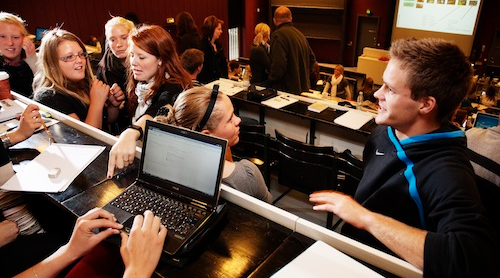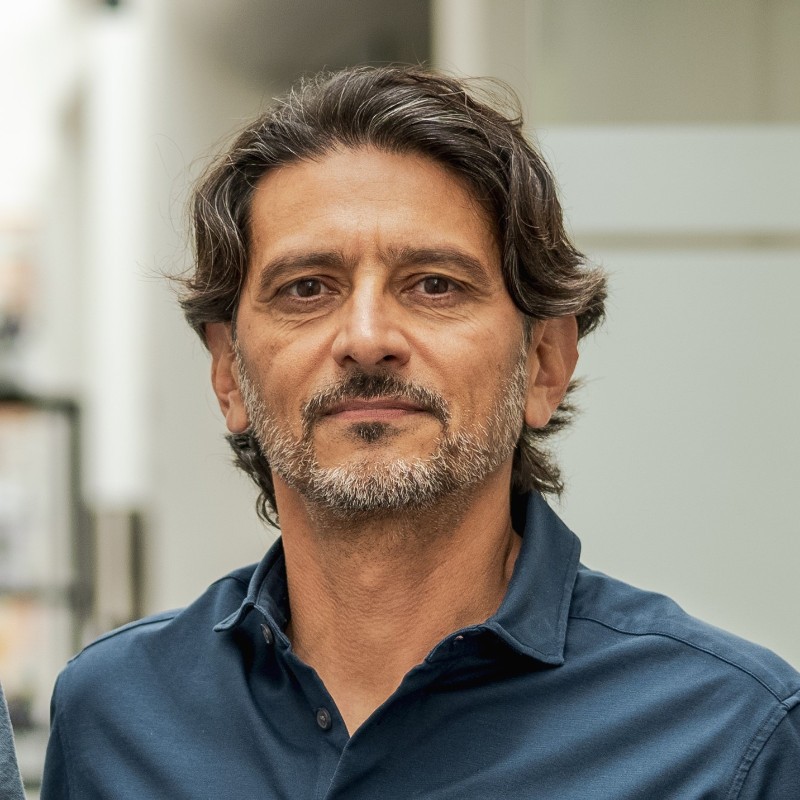Synthetic Biology Master's Course

February - April 2017, Center for Synthetic Biology is hosting University of Copenhagen's MSc course in synthetic biology.
The course is interdisciplinary and will be guided by the strong scientific groups of the Center for Synthetic Biology of Copenhagen University. Synthetic biology is an emerging technology that applies biological science as a basis for new developments within medicine, pharmaceutics, plant biology and materials sciences using combined concepts developed in biotechnology and nano-science. Foundational tools to meet this challenge include: Ready access to off-the-shelf standardized biological parts and devices as well as advanced tools that enable the integration of basic biological and synthetic units into multi component systems. Further, a variety of modern measuring techniques and computational tools are applied in the design and tests of new systems. The richness and versatility of biology is the basis for the great potential of synthetic biology, and it is foreseen that several of the world’s most pressing challenges may be addressed by these methods.
The course will focus on topics in the frontier of synthetic biology. This will be guided by updated literatures.
Examples of selected topics are:
1. Lipid membrane nanotechnology for synthetic biology
2. Light-driven synthesis: Charging the future
3. Synthesis of terpene compounds and manipulation
4. Applications of silver nano-cluster technology
5. Single molecule fluorescence microscopy and spectroscopy
6. Biophysical analysis for synthetic biology using scattering methods (light, X-ray) and thermal methods (DSC, ITC)
7. Intact Mammalian Cell Function on Semiconductor
Examples of experiments are:
Interface 1: Biology + Chemistry
1. Single molecule fluorescence microscopy
Demonstration of how we can record the emission of a single molecule. Pyrelenemonoimide dyes will be excited with Argon-ion laser and an image will be formed by a piezo scanner on top of an inverted confocal microscope.
2. Application of silver nano-cluster probe
Students will study how DNA fragment forms silver nano-clustering for a very strong fluorescence and possible applications of the DNA/silver nano-cluster probe for the detection of biological materials, e.g. miRNAs, nucleic acid binding proteins.
Interface 2: Biology + Physics
1. Nano-disc assembly
Self-assembly of monodisperse membrane nanoparticles is an extremely useful tool to study membrane proteins in a controlled native-like environment. Students will study how to make nano-disc (protein self assembly) and its biological applications.
2. Biophysical analysis for synthetic biology
a. Scattering methods (eg. Dynamic light scattering (DLS) and Small-angle X-ray scattering (SAXS)) can be used to elucidate the structure and size of biomelocules and bimolecular complexes. Students will study scattering methods using nanodiscs.
b. Thermal methods (eg. Isothermal titration calorimetry (ITC) and Differential Scanning Calorimetry (DSC)) wil be used to study the interaction of biomolecules as well as molecular transition and aggregation properties.
Synbio Masters Course Info
|
Language Credit Level Duration Placement Schedule |
English 7,5 ECTS Full Degree Master 1 block Block 3 B |
 Course responsible:
Course responsible:
Sotirios Kampranis
soka@plen.ku.dk
+45 35 33 29 89
